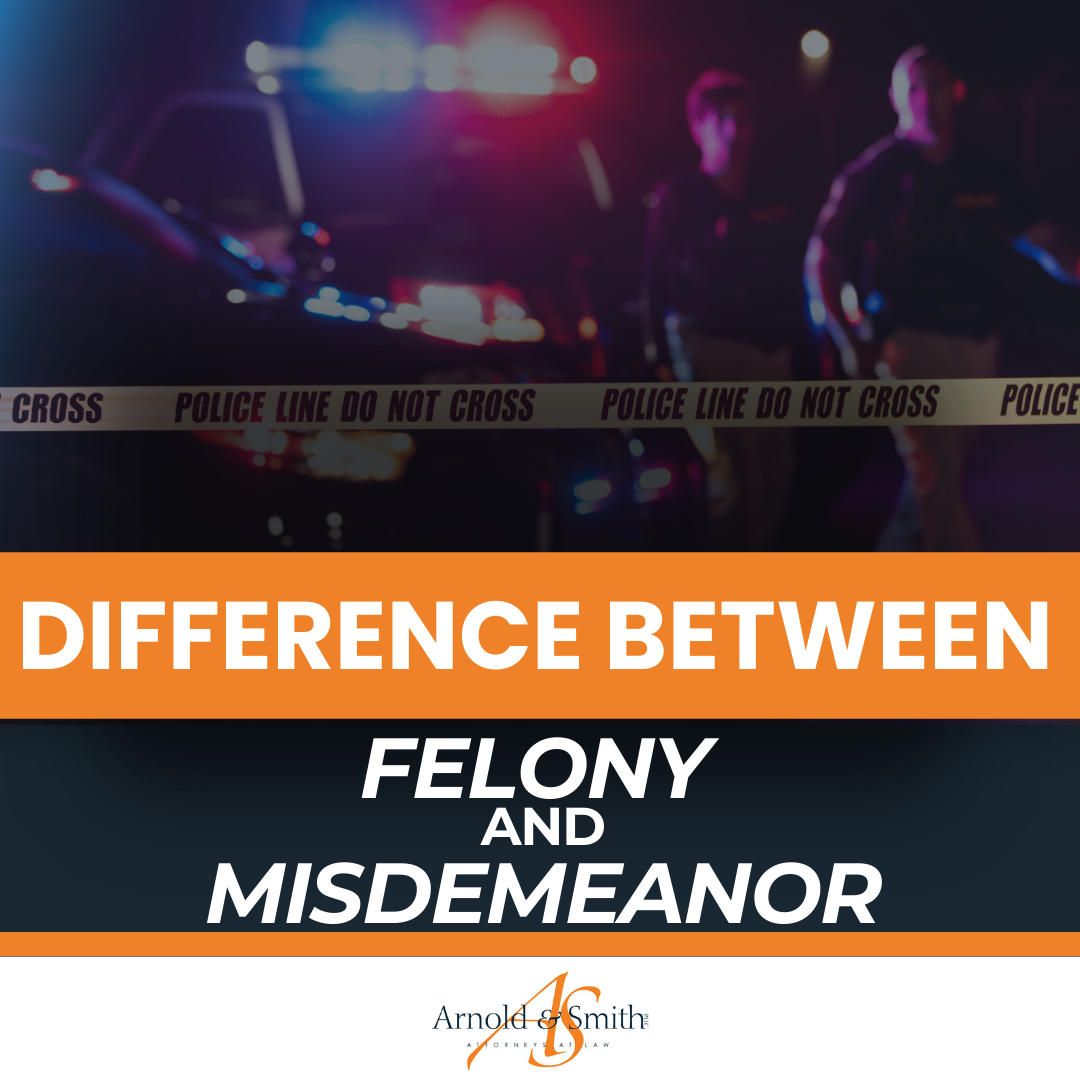 What is the Difference Between a Misdemeanor and Felony?
What is the Difference Between a Misdemeanor and Felony?
When you are charged with a crime it may be classified as either a misdemeanor or a felony. Regardless, any criminal charges against you are serious and could result in severe consequences. Some penalties could include a prison sentence, fines, probation, community service, suspension of your driver’s license, and more, depending on the charges. There are some important differences between misdemeanor and felony charges, and you will want to speak to an experienced criminal defense attorney as soon as possible.
Misdemeanors and Felonies
North Carolina classifies criminal charges into two main categories including misdemeanors and felonies. In general, misdemeanors are crimes that are of a less serious nature than felonies. Felonies are crimes that often involve violence. Some crimes can be charged as either a misdemeanor or felony depending on various factors of the case and the defendant. The classification of criminal charges is important because the penalties are typically lower for misdemeanors than felonies.
Charlotte Criminal Lawyer Brad Smith answers the question: “What is the difference between a misdemeanor and a felony?”
Misdemeanor
In North Carolina, there are four main classifications of misdemeanors. They range from Class A1 through Class 3, with Class A1 being the most serious.
- Class 3 – The least serious of misdemeanors, some of the crimes that fall into this category are trespassing, shoplifting, and marijuana possession, among others.
- Class 2 – These are less serious crimes than Class 1, but not extremely severe in nature. Some common examples of Class 2 misdemeanors are assault, reckless driving, and disorderly conduct.

- Class 1 – These are more serious crimes and include such things as larceny, breaking and entering, and possession of stolen property, and more. These are not quite as serious as Class A1 misdemeanors.
- Class A1- The most serious of all misdemeanor charges, these are typically slightly less serious than felony charges. Class A1 crimes include a variety of sexual abuse charges such as child abuse and sexual assault. Also included are charges of assault with a deadly weapon.
Felonies
Felony charges are the most serious and if convicted, they carry the most severe penalties as well. There are 10 classifications of felonies in North Carolina including A, B1, B2, C, D, E, F, G, H, and I. Of these categories, Class A felonies are the most serious and are punishable by life in prison or death. Judges have more range of discretion when sentencing felonies rather than misdemeanors, which have some set sentencing rules. Some of the most common felonies are manslaughter, murder, kidnapping, arson, robbery, aggravated assault, and DUI, as well as others.
Many times, a defendant faces several or more charges for their crimes. Some of the crimes may be misdemeanors while others might be felonies. The prosecutor will determine the charges based on the evidence they have collected. In some cases, they may offer a defendant a plea bargain, to take a guilty plea for a lesser charge rather than going to trial on a more serious charge. Your attorney will help to facilitate a plea deal and will work with you to ensure that you understand your available options.
If you have been charged with a crime, you will want to get the best possible legal representation to defend the charges. Contact our legal team at Arnold & Smith, PLLC at (704) 370-2828 for a consultation to discuss your case today.
The criminal defense attorneys at Arnold & Smith, PLLC make it their mission to zealously defend their clients on a wide range of criminal matters at both the state and federal levels. These matters may include any charge from traffic offenses; DWI/DUI; drug charges (from simple possession to possession with intent to distribute and trafficking); gun permit denials; weapons offenses; and property crimes (larceny, breaking and entering, robbery, fraud, embezzlement, white collar offenses); to sexually related offenses (indecent exposure; sexual assault, crimes against nature, removal from sex offender registry); and violent crimes (domestic violence; assault; manslaughter; homicide, murder). Other legal issues that Arnold & Smith, PLLC criminal clients may be facing include restraining orders, restraining order and probation violations, expungements; appeals; and immigration issues related to criminal charges. Our criminal defense attorneys are passionate about ensuring that individuals empower themselves by being informed about their constitutional rights and stand at the ready to fight in the defense of those facing criminal charges.
Source:
assault | Wex | US Law | LII / Legal Information Institute (cornell.edu)
General Statute Sections – North Carolina General Assembly (ncleg.gov)
Image Credit:
https://www.freeimages.com/photo/penitentiary-3-1234018
See Our Related Video from our YouTube channel:
https://www.youtube.com/user/ArnoldSmithPLLC/videos
See Our Related Blog Posts:
 Charlotte Criminal Lawyer Blog
Charlotte Criminal Lawyer Blog


